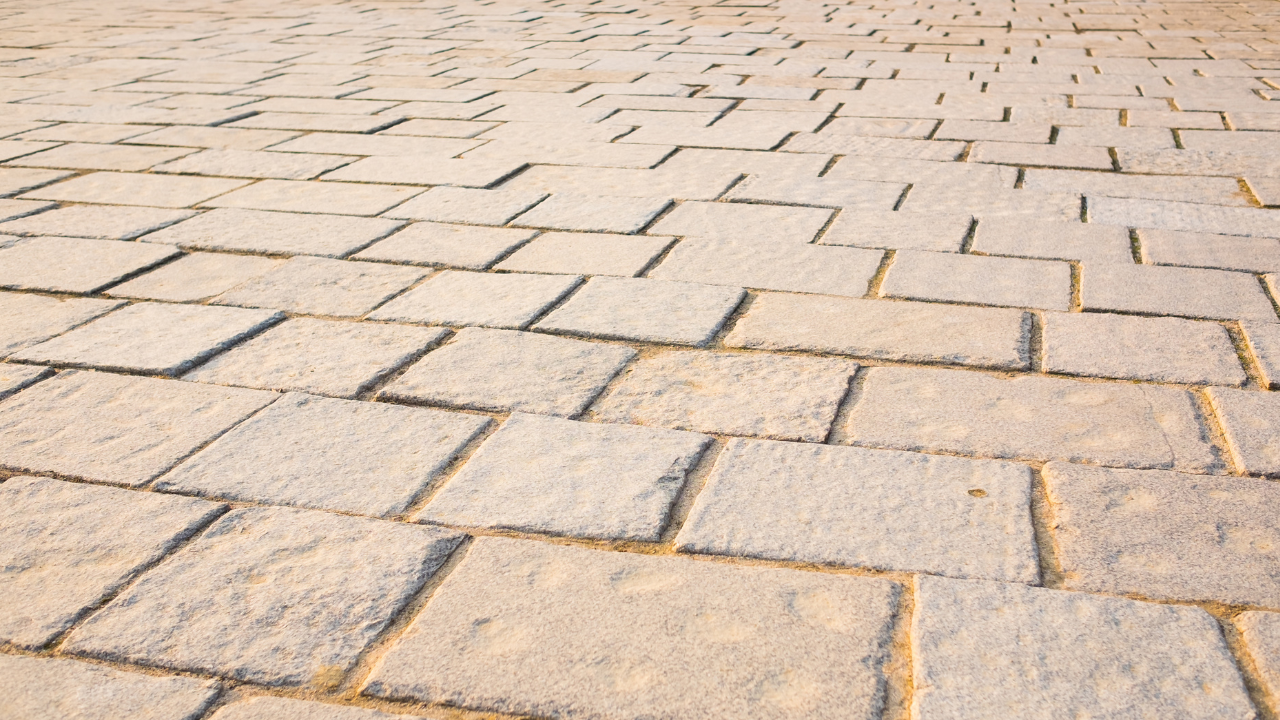5 mistakes to avoid when cleaning your patio, according to an expert
Thinking of cleaning your patio in time for summer? You should avoid these mistakes


Now that we're approaching summer, warmer weather will soon be on its way. In fact, parts of the UK are expected to reach up to 20ºC over the next week, making it the perfect time to start preparing your garden. We've already covered 10 gardening jobs for May, but what about your patio?
Despite patios being relatively easy to maintain, it doesn’t mean they don't need the same level of care. In fact, patios can get extremely dirty without proper care and attention, especially if you have one of the best barbecues set up on them.
With this in mind, we spoke to Trevor Knight, technical garden and driveway specialist for Marshalls. He shared with us the top five mistakes everyone makes when cleaning their patio, just so you don't do the same.
1. Using a pressure washer incorrectly
You must take caution when using of the best pressure washers as this method can damage your pavers if done incorrectly. Working from the corners in, hold the pressure washed at a 30-degree angle and work your way down the patio. Don't hold the pressure washer too close to the slabs as it may cause permanent damage.
If you're unsure, start on a low-pressure setting to reduce the risks of damage, and take things really slowly.
2. Using white vinegar
Despite often being a popular choice for cleaning the patio, vinegar can harm the biodiversity of your garden. White vinegar may be the ideal choice for those wanting to rid their patio of weeds, but if this solution were to make its way onto your plants and grass, the result would be less than desirable.
The use of acidic solutions should be avoided, particularly on calcareous pavers such as limestone. This could lead to irreparable damage of the material.
Get all the latest news, reviews, deals and buying guides on gorgeous tech, home and active products from the T3 experts
3. Using bleach
Similar to vinegar, bleach is harmful to plants and can therefore harm your garden’s biodiversity. Any bleach solution that runs off of the patio onto grass or plants when cleaning can cause significant harm to these, likely causing them to die.
Over time, bleach can also lead to discolouration and irreparable damage to paving slabs, particularly those that are man-made.
4. Not using an eco-friendly cleaning agent
Opting for an eco-friendly cleaning agent is crucial for protecting waterways and wildlife, ensuring no harsh chemicals are being washed away into natural water courses or borders of the garden. Mix your chosen cleaning agent with warm water and start from the corners of your patio slabs, working inwards. Rinse and repeat until you’re happy with the result.
When finished, rinse with clean water to ensure any loose dirt or residue has been removed, avoid washing suds and soap into a drainage point that’s a one-part system designed for rainwater only.
5. Not maintaining your patio after cleaning
Once you have washed your patio, you will want to check all joints to make sure none of the jointing material has been washed out or loosened. If it has, you will want to re-sand or re-point any of the affected joints.
If you’re considering a new patio, and you’re keen to spend the least amount of time on maintenance, you could consider using porcelain paving as it absorbs little to no moisture. This means that any detritus remains on the surface and is very much easier to clean and maintain.
If you're looking to upgrade your patio even more, check out these outdoor patio heaters that will do just the trick.

Lizzie is T3's Home Living Staff Writer, covering the latest in smart home, lifestyle and beauty tech. From skincare gadgets to vacuum cleaners, she's your go-to for trends and top recommendations.
When not writing, Lizzie enjoys mooching around Bath, spending time with loved ones, or testing her review units – often during an enthusiastic cleaning spree!